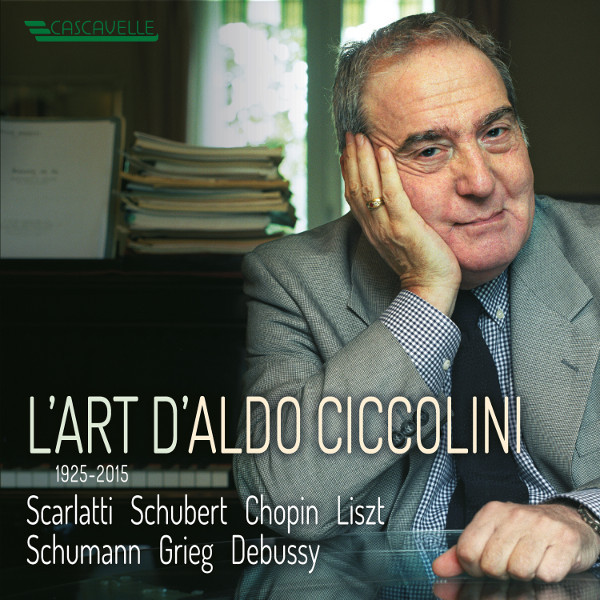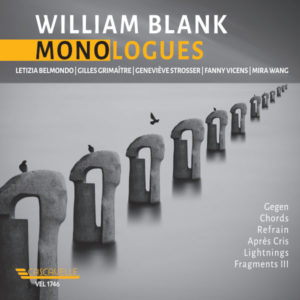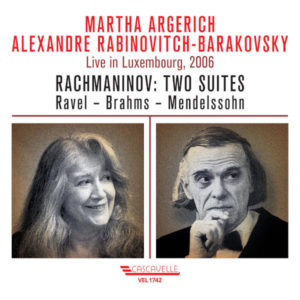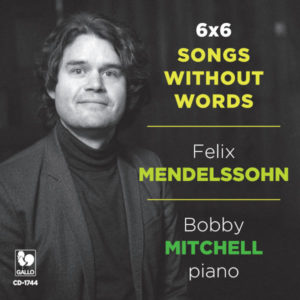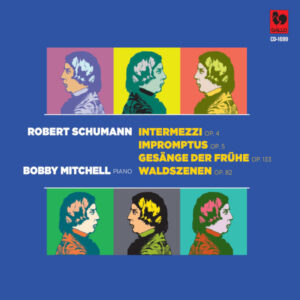Extraits / Excerpts
L'ART D'ALDO CICCOLINI: SCARLATTI - SCHUBERT - CHOPIN - LISZT - SCHUMANN - GRIEG - DEBUSSY (8 CD BOX)
Realized under the supervision of the executor of Aldo Ciccolini and completely remastered, this 8 CDs-Box includes recordings previously published under Cascavelle, and some others, among them, an unedited version (2002) of Chopin’s 3rd Sonata.
In the program: Scarlatti, Debussy, Schubert, Liszt, and especially Grieg, Schumann and still Chopin.
CD 1 :
Domenico SCARLATTI : Keyboard Sonata in C Major, K. 406 – Keyboard Sonata in E Major, K. 380 – Keyboard Sonata in F Minor, K. 239 – Keyboard Sonata in B Minor, K. 377 – Keyboard Sonata in D Major, K. 492 – Claude DEBUSSY : Préludes, Book 1, L. 117: I. Danseuses de Delphes – II. Voiles – III. Le vent dans la plaine – IV. Les sons et les parfums tournent dans l’air du soir – V. Les collines d’Anacapri – VI. Des pas sur la neige – VII. Ce qu’a vu le vent d’ouest – VIII. La fille aux cheveux de lin – IX. La sérénade interrompue – X. La cathédrale engloutie – XI. La danse de Puck – XII. Minstrels.
Aldo Ciccolini, Piano.
CD 2 :
Franz SCHUBERT : 4 Impromptus, Op. 90, D. 899: No. 2 in E-Flat Major – 4 Impromptus, Op. 90, D. 899: No. 4 in A-Flat Major – Franz LISZT : Soirées de Vienne, Valse-Caprice No. 6 d’après Schubert, S. 427 – Piano Concerto No. 2 in A Major, S. 125: I. Adagio sostenuto assai – Allegro agitato assai – II. Allegro moderato – Allegro deciso – III. Marziale un poco meno allegro – IV. Allegro animato – Stretto – Frédéric CHOPIN : Piano Sonata No. 3 in B Minor, Op. 58: I. Allegro maestoso – II. Scherzo, molto vivace – III. Largo – IV. Finale, presto non tanto.
Aldo Ciccolini, Piano – Orchestre de la Suisse Romande, Ferenc Fricsay, Conductor.
CD 3 :
Frédéric CHOPIN : Nocturne No. 1 in B-Flat Major, Op. 9, No. 1: Larghetto – Nocturne No. 2 in E-Flat Major, Op. 9, No. 2: Andante – Nocturne No. 3 in B Major, Op. 9, No. 3: Allegretto – Nocturne No. 4 in F Major, Op. 15, No. 1: Andante cantabile – Nocturne No. 5 in F-Sharp Major, Op. 15, No. 2: Larghetto – Nocturne No. 6 in G Minor, Op. 15, No. 3: Lento – Nocturne No. 7 in C-Sharp Minor, Op. 27, No. 1: Larghetto – Nocturne No. 8 in D-Flat Major, Op. 27, No. 2: Lento sostenuto – Nocturne No. 9 in B Major, Op. 32, No. 1: Andante sostenuto – Nocturne No. 10 in A-Flat Major, Op. 32, No. 2: Lento.
Aldo Ciccolini, Piano.
CD 4 :
Frédéric CHOPIN : Nocturne No. 11 in G Minor, Op. 37, No. 1: Andante sostenuto – Nocturne No. 12 in G major, Op. 37, No. 2: Andantino – Nocturne No. 13 in C Minor, Op. 48, No. 1: Lento – Nocturne No. 14 in F-Sharp Minor, Op. 48, No. 2: Andantino – Nocturne No. 15 in F Minor, Op. 55, No. 1: Andante – Nocturne No. 16 in E-Flat Major, Op. 55, No. 2: Lento sostenuto – Nocturne No. 17 in B Major, Op. 62, No. 1: Andante – Nocturne No. 18 in E Major, Op. 62, No. 2: Lento – Nocturne No. 19 in E Minor, Op. posth. 72, No. 1: Andante – Nocturne No. 20 in C-Sharp Minor, Op. posth.: Lento con gran espressione – Nocturne No. 21 in C Minor, Op. Posth.
Aldo Ciccolini, Piano.
CD 5 :
Robert SCHUMANN : Faschingsschwank aus Wien, Op. 26: I. Allegro – II. Romanze – III. Scherzino – IV. Intermezzo – V. Final – Wladszenen, Op. 82: I. Eintritt – II. Jäger auf der Lauer – III. Einsame Blumen – IV. Verrufene Stelle – V. Freundliche Landschaft – VI. Herberge – VII. Vogel als Prophet – VIII. Jagdlied – IX. Abschied – Piano Sonata No. 3 in F Minor, Op. 14 “Concerto without Orchestra”: I. Allegro – II. Scherzo – III. Quasi variazioni – IV. Prestissimo possibile.
Aldo Ciccolini, Piano.
CD 6 :
Edvard GRIEG : Lyric Pieces, Book 1, Op. 12: I. Arietta – II. Valse (Waltz) – III. Chant du gardien de nuit (Watchman’s Song) – IV. Danse des fées (Elves’ Dance) – V. Chant populaire (Folk Tune) – VI. Mélodie norvégienne (Norwegian Melody) – VII. Feuille d’album (Albumleaf) – VIII. Chant national (National Song) – Lyric Pieces, Book 2, Op. 38: I. Berceuse (Lullaby) – II. Chant populaire (Folk Tune) – III. Mélodie (Melody) – IV. Halling – V. Springdans (Leaping Dance) – VI. Elégie (Elegy) – VII. Valse (Waltz) – VIII. Canon – Lyric Pieces, Book 3, Op. 43: I. Papillon (Butterfly) – II. Voyageur solitaire (Lonely Wanderer) – III. Au pays natal (In the Homeland) – IV. Petit oiseau (Little Bird) – V. Erotique (Erotik) – VI. Au printemps (Spring Time) – Lyric Pieces, Book 4, Op. 47: I. Valse-impromptu – II. Feuille d’album (Albumleaf) – III. Mélodie (Melody) – IV. Halling – V. Mélancolie (Melancholy) – VI. Springdans (Leaping Dance) – VII. Elégie (Elegy).
Aldo Ciccolini, Piano.
CD 7 :
Edvard GRIEG : Lyric Pieces, Book 5, Op. 54: I. Le berger (Herdboy) – II. Marche des paysans norvégiens (Norwegian Peasant March) – III. Marche des nains (March of the Trolls) – IV. Notturno – V. Scherzo – VI. Sonnerie des cloches (Bellringing) – Lyric Pieces, Book 6, Op. 57: I. Tombée du jour (Vanished Days) – II. Gade – III. Illusion – IV. Secret – V. Elle danse (She Dances) – VI. Mal du pays (Homesick) – Lyric Pieces, Book 7, Op. 62: I. Sylphe – II. Gratitude – III. Sérénade française (French Serenade) – IV. Ruisselet (Brooklet) – V. Fantôme (Phantom) – VI. Vers la patrie (Homeward).
Aldo Ciccolini, Piano.
CD 8 :
Edvard GRIEG : Lyric Pieces, Book 8, Op. 65: I. Des années de la jeunesse (From Years of Youth) – II. Chant du paysan (Peasant’s Song) – III. Mélancolie (Melancholy) – IV. Salon – V. Nervure de feuille (Veined Leaf) – VI. Jour de noces à Troldhaugen (Wedding Day at Trolldhaugen) – Lyric Pieces, Book 9, Op. 68: I. Chant des marins (Sailor’s Song) – II. Menuet de grand’mère (Grandmother’s Minuet) – III. A tes pieds (At Your Feet) – IV. Soir en haute montagne (Evening in the Mountains) – V. Au berceau (Cradle Song) – VI. Valse mélancolique (Melancholy Waltz) – Lyric Pieces, Book 10, Op. 71: I. Il était une fois (Once Upon a Time) – II. Soir d’été (Summer Evening) – III. Lutin (Puck) – IV. La paix des bois (Peace of the Woods) – V. Halling – VI. Passé (Gone) – VII. Souvenirs (Remembrance).
Aldo Ciccolini, Piano.
« Every one of the discs that I recordedwith Aldo Ciccolini remains etched in my memory.
He was a committed man, on a perpetual quest for perfection.
He was ‘music’ himself. It never left him. Even in the middle of the night.
He knew all the music in the world. Or practically. He adored quoting or playing operas, symphonies, and chamber music on the piano, having us touch with the finger such and such influences, singing a theme reprised in homage by a great composer.
Above all, he was a transmitter: a large part of his life was devoted to receiving young people, whom he considered not as students but as musicians. Discs had the same mission: to leave traces of music that was rarely played or ill-known.
His repertoire was vast, and Déodat de Séverac or Federico Mompou occupied the same place in his heart as Beethoven or Chopin.[show_more more=”Show More” less=”Show Less”]
My first meeting with Aldo Ciccolini, in 1996, was quite moving.
We had to decide on the first disc we wanted to make together. His choice of recording encores amazed me because I imagined that he had other desires. He thought this repertoire would be ideal for a producer… But it was not what I imagined for our first collaboration, even though I was happy to see this list of magnificent, well-known pieces…
I simply wanted him to record a disc that he deeply wanted to have released.
After many discussions, and after having promised, even without knowing the programme, I agreed in advance. He confessed: the works of Janáček!
He recorded with unbelievable intensity, a profound and moving interiority. It was a lesson in humility for me, since he had initially thought of pleasing me.
This friendship led us to record many other discs, each of which was fascinating.
I observed on numerous occasions that his way of envisaging a work had nothing to do with what other pianists were doing or even with his own desires of the moment.
His conception was built above all on his personal conviction shaped by his vast culture and, especially, the texts.
This is the reason for which each recording by Aldo Ciccolini is unique and never resembles what we thought we knew about a work.
That is the mark of the greats.
In the course of recording the Chopin Nocturnes, on the second day he asked me what I thought.
I told him that not everyone would like it… His response was immediate: It doesn’t matter!
This reply should not be seen as arrogant. It simply meant that he did not play to charm listeners but to respond to the huge responsibility he felt vis-à-vis the composer. He played for the composers first and foremost.
It was often quite difficult to choose one take among several others that were just as magnificent — each one could relate a landscape, observed from several points of the compass — without their contradicting each other. Aldo was of no help in those moments, because he trusted me and knew how much I would respect his choices. Moreover, the exercise of editing or formatting hardly interested him. He came at the very end to listen to the work and put his finishing touch. ‘To choose is to renounce’ is a maxim that I therefore often experienced.
Beyond those intense moments shared with him over the years, above all I remember that he was like no one else. What drove him was leaving interpretations in which he told a story with emotion, sincerity, rigour and authenticity. »
Joël Perrot, Artistic director and engineer
for Aldo Ciccolini’s recordings
from 1996 to 2016
Translated by John Tyler Tuttle
[/show_more]
Attention! CD 1, and 2 (except Chopin’s works) are not available on iTunes
- Categories
- Composers
- Interprets
- Booklet
